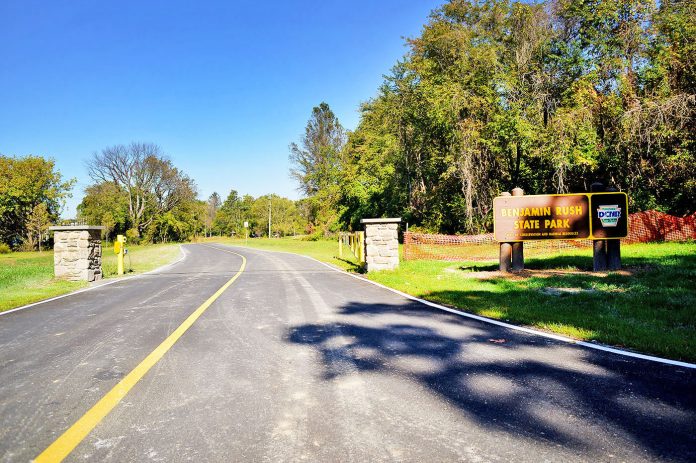By Cindy Dunn and David Masur
When it comes to awe-inspiring public lands, Pennsylvania’s is home to some of the nation’s best-hidden gems. Millions of acres of federal, state and local public lands provide Pennsylvanians with a superior quality of life and enhance our economy. In fact, Pennsylvania’s outdoor recreation economy is the fifth largest in the nation. Continued, sustained investment in these outdoor assets is needed to assure that they remain ready to enjoy.
The recently ended federal shutdown – the longest of its kind in U.S. history – has shone a bright spotlight on America’s national park system and the important role of federal oversight and stewardship needed to protect the nation’s most iconic outdoor places.
Yet, the reality is that our national parks have been in dire need of more funding, greater maintenance and heightened protection even when the government is open.
That’s because even before the government shutdown occurred, programs that protected our parks were on the chopping block.
The clearest example of these ongoing threats to our parks is the expiration of the cornerstone program that funds our national parks and forests, along with state and local parks and outdoor spaces.
Last September, despite broad bipartisan support, Congress failed to reauthorize the Land and Water Conservation Fund, or LWCF. For more than 50 years, the LWCF has preserved and improved federal, state and local parks and open spaces.
Incredibly, the LWCF has supported projects in every state and nearly every county in the U.S., from iconic sites like the Gettysburg National Park, the Appalachian Trail and the Flight 93 Memorial to Pennsylvania’s state parks and local trails, pools and playgrounds.
In Pennsylvania alone, the LWCF has provided more than $315 million to preserve and maintain public lands, including Wissahickon Park, Awbury Park Pool and Nicetown Park in Philadelphia.
Recently, we were proud to join local officials and community leaders in Bethlehem to celebrate a $1 million grant from the state Department of Conservation and Natural Resources to renovate the city’s largest and most popular pool, Memorial Pool in Monocacy Park. That grant, to renovate the 60-year-old pool, was funded by the LWCF. It is a prime example of how this program is used to protect outdoor and recreational spaces that improve the community’s quality of life.
We all have our own memories of connecting with nature and exploring the outdoors. That includes camping and hiking the Appalachian Trail at the Pine Grove Furnace State Park, paddling canoes through the Delaware Water Gap or spotting wildlife at French Creek State Park, all of which have benefited from LWCF funding.
It is easy to take these experiences for granted. But without government investments and protections, like a continued LWCF, the parks and lands we enjoy for hunting, fishing, camping, kayaking and other outdoor activities will no longer be available.
LWCF has done more than help create memories. It also gives a boost to the economy. Recreational activities in Pennsylvania produce about $29 billion in consumer spending annually and support more than a quarter-million jobs, according to the Outdoor Industry Association. The LWCF contributes to these economic benefits through its investments in outdoor spaces and recreational opportunities.
LWCF’s successful record has earned it bipartisan support in Congress. Nevertheless, legislation to permanently reauthorize and fully fund the program remains stalled.
It is time for LWCF’s congressional supporters, including its many members here in Pennsylvania, to work to ensure that permanent LWCF reauthorization and full funding is brought up for a vote as soon as possible.
Continued delay will put more of the outdoor places we love at risk. For the sake of the millions of Americans who work in the outdoor recreation industry and the countless families who want to continue to enjoy nature, stay healthy and make memories, Congress must act. ••
Cindy Adams Dunn is secretary of the state Department of Conservation and Natural Resources, and has worked in both public and nonprofit roles in conservation. David Masur is the executive director for PennEnvironment, the statewide citizen-based nonprofit environmental advocacy group.





